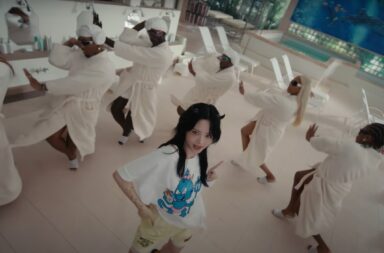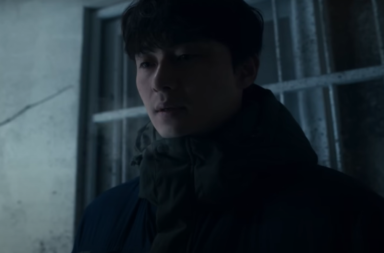 The entertainment industry will always be filled with controversies and drama, but what cannot always be predicted is the public’s response to them.
The entertainment industry will always be filled with controversies and drama, but what cannot always be predicted is the public’s response to them.
2014 played out like an outrageous K-drama — If someone had mentioned the level of crazy that would occur, most of us would’ve probably slept in a cryogenic chamber until 2015.
To be fair, everyone involved is human and prone to fallacy. Issues are bound to pop up because of misunderstandings, but at the forefront of it all, are the companies. In K-entertainment, image extends beyond the physical. It’s about maintaining an illusion of perfection and purity that, quite frankly, is inconceivable.
When the metaphorical crap hits the fan, agencies scramble to explain the situation in order to assuage any public outrage over the matter. Sometimes, it’s handled well, but there are some instances in which the official statements from these companies are questionable. Let’s take a look at a few and try to understand why those companies couldn’t give anyone a straight answer.
Big Hit Entertainment: “We couldn’t contact her.”
Dahee of Glam is being charged with the blackmail of actor Lee Byung-hun. She and a model allegedly taped the actor saying some salacious things and threatened to expose it if he didn’t pay them. His agency wasted no time to file charges, but the issue is what Dahee’s agency, Big Hit Entertainment, stated in response to the situation.
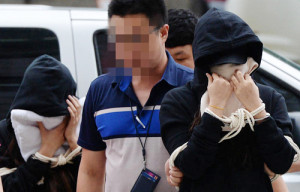 Basically, Big Hit threw Dahee under the proverbial bus and said they had no communication with her. Later on, it was revealed that Dahee accrued a great deal of debt, which most speculated were fees associated with her agency. The practice of charging idols for their own promotions and living expenses is no secret to any fan who digs deep enough into the business. It’s the elephant in the room no one wishes to acknowledge, but what makes this more unbelievable is that Big Hit acts as if all communication was cut off. So, one of your artists owes you a ton of money, but you’ve managed to lose contact with her?
Basically, Big Hit threw Dahee under the proverbial bus and said they had no communication with her. Later on, it was revealed that Dahee accrued a great deal of debt, which most speculated were fees associated with her agency. The practice of charging idols for their own promotions and living expenses is no secret to any fan who digs deep enough into the business. It’s the elephant in the room no one wishes to acknowledge, but what makes this more unbelievable is that Big Hit acts as if all communication was cut off. So, one of your artists owes you a ton of money, but you’ve managed to lose contact with her?
Now, this is purely theoretical, but from Big Hit’s perspective, saying that Dahee was unreachable puts them at a distance from the situation. They deflect the blame off of themselves by creating an image of a runaway artist who is avoiding her debtors. Dahee didn’t do herself any favors by purchasing tickets to leave the country before charges were filed, further supporting Big Hit’s argument. Their story paints them as victims in this crime as well, allowing them to retain a near-spotless public image.
YG Entertainment: Dead Silence
YG Entertainment is known for its hyped-up marketing tactics, so when things go silent there, it means something became serious. There were at least two instances this year during which YG may have been quiet at the worst of times.
First, there was the “MTBD” flare-up over allegations that CL‘s rap single included parts of the Qu’ran in the backing track. Rather than issue out an official apology, YG removed the original track and replaced it with one that omitted the offensive bit. While this satisfied some fans, others still wanted an explanation and apology for their actions. The lack of response led to some internal fan wars over the controversial content.
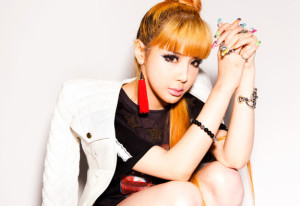 The other instance was a bit more serious, at least in South Korea, as it concerned 2NE1‘s Park Bom and a drug smuggling scandal. The public outrage may not have been warranted, if it wasn’t for the fact that the alleged smuggling took place four years ago. YG did issue an explanation once the story broke, but keeping silent about it for four years is most likely the reason for the public ire of many netizens.
The other instance was a bit more serious, at least in South Korea, as it concerned 2NE1‘s Park Bom and a drug smuggling scandal. The public outrage may not have been warranted, if it wasn’t for the fact that the alleged smuggling took place four years ago. YG did issue an explanation once the story broke, but keeping silent about it for four years is most likely the reason for the public ire of many netizens.
The possible logic behind the “remain silent” approach in both of these instances was probably to avoid doing more damage with a bad statement. If YG issued out a statement that was perceived as being disrespectful or nonchalant, others could’ve taken greater offense to what was said, rather than what was not said. By saying nothing, they avoided the foot-in-mouth situation that erupts when agencies literally don’t know what to say.
KeyEast Entertainment: “It was play fighting.”
Domestic violence is nothing to be taken lightly, yet one would never guess that, given the response from Kim Hyun-joong‘s agency, KeyEast Entertainment. Fans were shocked when Kim Hyun-joong’s ex-girlfriend filed assault charges against him. This was something of a double blow since both his relationship, and his abuse towards his ex, were now public knowledge.
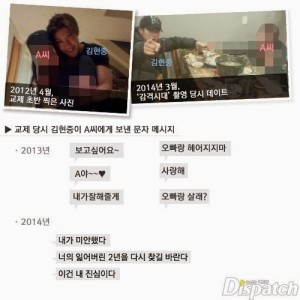 KeyEast originally tried to subdue the furor by claiming the relationship only lasted a few months, however, more information came forward that revealed the couple was together for two years. Their aim was to paint his ex as a liar, but it backfired once the truth came out.
KeyEast originally tried to subdue the furor by claiming the relationship only lasted a few months, however, more information came forward that revealed the couple was together for two years. Their aim was to paint his ex as a liar, but it backfired once the truth came out.
That first lie set a precedence of more lies to cover up what actually occurred between Kim Hyun-joong and his ex. Her side claimed there were several instances of abuse, but his side refuted the claims, saying it was “play fighting” that got out of hand only once. Considering his ex was hospitalized for broken ribs during one such fight, what exactly about this was supposed to be “playful”?
These are adults, not children. KeyEast issuing statements like these treats the public as if they have childish logic, instead of common sense. It also doesn’t help to have Kim Hyun-joong delay the investigative proceedings to attend fan meetings overseas. KeyEast would’ve been better off cooperating with the authorities and not attempting to paint his ex as a vindictive liar. They did more damage to his image by avoiding the truth, rather than having him confess his mistakes in the first place.
SM and TS Entertainment: “We’re the victims. They’re too greedy.”
Arguably, the biggest controversies involved contract disputes between the companies and their unhappy artists. 2014 will most likely be marked as the Year of Contract Nullification as more idols demand better treatment from their companies.
 Kris and Luhan of Exo, and recently, B.A.P., have thrown fans into a frenzy by suing their agencies over allegations of unfair business practices and mistreatment. All three cases revealed horrifying accounts of alleged abuse and sketchy money transactions that made sense to no one. Because of their strong fan bases, their agencies were up against quite a powerful opponent in the court of public opinion. How would they counter these atrocious allegations from their own artists?
Kris and Luhan of Exo, and recently, B.A.P., have thrown fans into a frenzy by suing their agencies over allegations of unfair business practices and mistreatment. All three cases revealed horrifying accounts of alleged abuse and sketchy money transactions that made sense to no one. Because of their strong fan bases, their agencies were up against quite a powerful opponent in the court of public opinion. How would they counter these atrocious allegations from their own artists?
Both SM and TS Entertainment issued statements about how they gave their artists everything they could, saying that the lawsuits blindsided them. They also alluded to the idea that some secret entity was working behind the scenes to tear apart their happy family. SM and TS carefully worded their official statements to give off a sense of compassion towards their artists, so the public would view SM and TS as the victims. This is meant to throw off any thoughts of injustice done by the companies, and instead, make the artists appear selfish for wanting more money and rest.
These are only theories as to what these agencies could’ve been thinking when responding to some of the biggest controversies of 2014. The nature of this business is all about creating a false image, so understandably, the problem runs deep. Like their artists, these companies should learn from their mistakes and stop creating scapegoats for the sake of a positive image. When companies avoid honesty, it only puts more distrust in fans and a greater microscope on how they handle their artists. Lying certainly has not benefited anyone here, so ideally, the truth should prevail, but old habits die hard.
Will 2015 yield more honesty from agencies as controversies continue, or will we get more lies to cover the grime among the glitter?
(Sports World, Nate, Facebook, Newsen, Images via TS Entertainment, SM Entertainment, Star News, Complex, CeCi, Dispatch)
